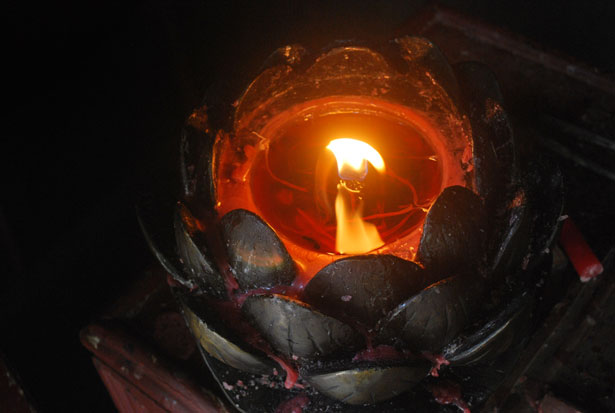 It has been proposed by some that modern witchcraft is declining. But some argue that modern witchcraft has just changed form. The new generation of Witches is no longer looking for coven practice or ritual. They are suspicious of secrecy and anything that smells hierarchical. They want spirituality they can find on the internet between their jobs, their commutes, and their social media.
It has been proposed by some that modern witchcraft is declining. But some argue that modern witchcraft has just changed form. The new generation of Witches is no longer looking for coven practice or ritual. They are suspicious of secrecy and anything that smells hierarchical. They want spirituality they can find on the internet between their jobs, their commutes, and their social media.
People may have strong feelings about that one way or the other. I’m not here to argue those points (though I might in a future article). I am here, speaking to what I generally presume to be an older generation of Guides who want to reach the younger generation of Seekers. This is what they want; many prominent writers of the next generation of Witches have said so. You can argue that this is an inappropriate attitude, but you’ll be arguing to an empty room because no one will be listening.
I came to Wicca at a very interesting time both personally and in terms of modern Craft history. I was very young (ten years old when I discovered Raymond Buckland’s Practical Candleburning Rituals; fourteen when I started serious practice.) I was a teenager exploring the Craft during the time of the Satanic Panic. About that time, Witchcraft was already in the midst of a transformation, from a coven-focused, initiatory experience to an army of solitary practitioners. A whole flurry of books appeared: from Janet and Stewart Farrar, Starhawk and the Reclaiming Community in the mid-eighties; Scott Cunningham and Raymond Buckland in the early ’90s; Silver RavenWolf and Ann Moura in the late ’90s and early millennium. There were others, but those were the ones everybody read. These books stressed a background in ritual and practice. They came out of what was primarily, in the Western world, a Protestant Christian culture. So much of their training (and mine) focused on breaking the conditioning of that culture. We concentrated on releasing “either, or” thinking and learning “yes, and” thinking. We fought long, hard battles with ourselves and others about whether or not Witchcraft was evil and wrong because the Bible objected to it. We were products of our time, fighting for recognition, fighting over feminism, fighting over gender and issues of sexuality. All of these were results of breaking our conditioning.
Well guys, the battle is over. Millennials did not grow up in a Protestant Christian culture. Instead, many of them are lotus-eaters lulled by the Cult of Mammon, who are used to being acted upon rather than acting, often apathetic towards the issues that the previous generation fought so passionately about.[1] The books that have informed their Craft were written by Christopher Penczak, Raven Grimassi and T. Thorn Coyle, who are all about experience and transcendence. They grew up with feminism, with Gay Pride, and with a sense of entitlement to all forms of equality. They don’t need to break their “either, or” conditioning; they’ve already been raised to understand “yes, and.” They are used to high-speed internet and instant gratification. They are interested in direct, personal gnosis, and they don’t want to waste a lot of time to get it.
People genuinely believe they can teach themselves the Craft over the internet. I’m not sure I know why; if you tried to tell people you learned karate over the internet, they would laugh at you and no one would recognize your belt unless you challenged for it (and most masters wouldn’t even honor your challenge). And I’m not saying it’s good or bad, or even that it’s impossible (I’m teaching an online course on Witchcraft myself). But they’re not going to listen to any live person if they’re not giving them something that the internet doesn’t.
Any experienced Witch, no matter whether you are solitary or coven-trained, Feri or Alexandrian or Reclaiming or Gardnerian or eclectic, will say that Witchcraft is all in the practice. We know that nothing but time and experience will teach the skills necessary to be good at the Craft, and there’s just no substitute for it. But I remember being young (and I’m only pushing 40, so I guess I’m still young in many ways) and clever and strong-willed. If anyone had tried to tell me that, I wouldn’t have been very patient with it. We know this “instant gratification” desire and limited attention span is the bugaboo of the new generation, just as “either, or” thinking was the bugaboo of the last (and due to age and practice, I straddle the fence and have had to work to break through both of those bugaboos at once!). But if you can’t offer ways to find personal, direct gnosis along the way, they’re not going to stay interested.
My last several articles have developed a pattern of listing, with direct points that I then illustrate. Listing isn’t going to work here because reading the balance is a technique. There’s no checklist I can offer; all I can say is that with my students, my most positive results have involved keeping a few things in mind. That need for ongoing experiences of direct, personal gnosis is the most significant point I can think of. And yet, we need to train the minds of the next generation to not to give up on things when they get boring; because we know that’s when the trance begins and the brain begins to learn the skills you’re trying to teach it.
One of the big challenges facing us as Guides is convincing a new Seeker that reading about it is not the same as doing it for oneself. But a virtual experience is no substitute for actual experience. For that reason, I think it’s important to provide a lot more hands-on, experiential activity than it may have been in previous generations. When I start a new coven these days, I do the basic Esbat ritual two or three times myself or with my Priest. Then I make the Seekers copy it into their Books of Shadows, preferably by hand so it sticks with them, and then I make them start doing portions of the ritual (Calling Quarters, etc.). I make the ones with more experience (you’ll end up with that a lot these days; a few complete newbies and a couple of keeners with a lot of solitary practice under their belts) do the ritual themselves and do almost nothing myself at about six to eight months in. I make other people take charge of the Sabbats when possible, and rather than directing them, I encourage them to do their own research and then offer my help – if they should ask for it. Afterwards, I critique the ritual and offer suggestions.
When I am introducing a training exercise, I assign the exercise and explain why I am assigning it. Then I send the coven home to do it on their own and find an experiential connection. Until they’ve done the exercise, I don’t assign the next exercise. We discuss it, I ask them to tell me what they got from it and then I tell them what I wanted them to get from it, and we move on. Rather than getting students to copy a list of correspondence tables on the phases of the moon and their powers, I tell them to go out and experience that phase of the moon directly and in their own way. Then I tell them what the traditional sources say.
When I do things that are directed in group, I allow for variations and individual experience. And this includes some of the more “dangerous” activities such as astral journeys to face the Shadow-Self; dealing with cultural taboos such as nakedness, scourging, intoxicating substances or sex magick; and things that require the setting aside of your ego-consciousness such as Drawing Down or religious ecstasy. I teach this outside of ritual so that only those ready to explore it directly do so. I find that with each passing year, I teach it earlier and earlier. I believe this is because the new generation is more ready to challenge cultural taboos. The one exception is Drawing Down and other forms of channeling, which I teach later and later. I think that’s also a manifestation of the millennial culture, which exalts the individual so much that it is increasingly challenging to set the ego aside and let the Gods speak. The last generation feared it because it was “evil possession”; this generation fears it because they are afraid of losing themselves.
It helps to tell yourself that there is no “right” or “wrong” answer (that’s our “either, or” bugaboo again.) There might be a specific way that your tradition does things, but this kind of co-creative process allows the new generation to exercise their independence and their own creativity. It also allows them to make their own mistakes. I will sometimes point out that I don’t think a particular action is a good idea and state my reasons, but I’ll let them figure it out for themselves. Some people have to learn that way. I generally find that if something’s been done a certain way for generations, there’s a good reason for it. (Judy Harrow’s analysis of coven procedure and structure in Wicca Covens is a good object lesson in that, and my experience holds up her theories.)
The last suggestion I can make is that you shouldn’t take the Millennial creativity and individuality personally. We aspired to ideals of equality and balance; we shouldn’t sneer at them for taking us up on it. The young have their own contributions to make. There are times when my students aren’t as clever as they think they are, but there are times that I learn things from them as well.
Overall, I think that the emphasis on the new face of Witchcraft is experiential rather than theoretical, and there’s no need to fight that. Offer opportunities for experiences. Guide rather than teach.
Next column: Witches of Cyberspace – Online vs. In-Person Instruction in the Craft
[1] Because I have received flak in the recent past for not being clear when making a general statement, I point out that I don’t mean that everyone in the Millennial generation is like this, any more than every person from the previous generation is a Protestant Christian; nor is this a judgment on the character of Millennials. I mean this is a significant trend in the culture and it has an influence. If I am casting a judgment, it is on the blind materialism of present society. Witchcraft is counter-cultural; I think Millennial Witches, though influenced by this culture, are looking for a way out of it, just as previous generations wanted a way out of Protestant Christian dualism.
Seekers and Guides is published on alternate Mondays. Follow it via RSS or e-mail!













